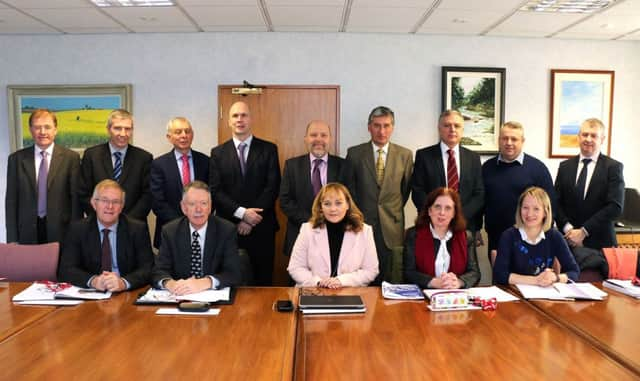Partnership helps to reduce greenhouse gases


Speaking after the meeting in Belfast, Miss McIlveen said: “I welcomed the meeting with the members of the GHGIP.
“There is a wealth of agricultural experience within the membership and I commend the efforts of the partnership and the wider agri-food industry to reduce its carbon footprint.”
Advertisement
Hide AdAdvertisement
Hide AdThe GHGIP is a partnership between Government, agriculture producers and processors and environmental representatives working jointly to tackle the issue of greenhouse gas emissions arising from agriculture.
The group published ‘Efficient Farming Cuts Greenhouse Gases Implementation Plan 2016-2020’ in September last year.
The plan is focused on increasing the implementation of efficiency measures designed to have a beneficial impact on both GHG emissions and farm profitability. A key action within the plan was to develop a scientifically and statistically robust indicator of progress on GHG emissions intensity for two of our key agricultural outputs – milk and beef.
Following a joint project by DAERA Economists and AFBI, DAERA published a statistical report on the first phase of this work which presents findings from a carbon footprint time series study on Northern Ireland’s dairy farms.
Advertisement
Hide AdAdvertisement
Hide AdThe Minister added: “The recent publication clearly shows the progress made by the local dairy industry which has achieved a 30.7% reduction in the amount of carbon it takes to produce a litre of milk since 1990.
“This has been achieved while dairy cow numbers have remained relatively steady and production has increased by over 60%, clearly demonstrating the benefits brought about by increased efficiency, technological improvements and structural change, all of which play a part in the Efficient Farming approach.”
Speaking ahead of the meeting, Northern Ireland Director of Dairy UK and Chair of the GHGIP Dairy Sub Group, Dr Mike Johnston said: “We know that our industry is already an efficient producer of high quality milk and dairy products, and the publication proves this to be the case.
“Our focus will now turn to how we can use this information to achieve further reductions by targeting measures to the key factors which influence carbon intensity and yield including replacement rates, calving age, concentrate feed and fertiliser.”
Advertisement
Hide AdAdvertisement
Hide AdMinister McIlveen concluded: “I want to see this type of partnership continue to benefit our agriculture sector, supporting sustainable growth and improving our environmental performance. The Efficient Farming approach successfully demonstrates that it is possible to achieve both.
“I urge all farmers to consider the opportunities they have to implement the on-farm efficiency measures contained within the Efficient Farming plan and to avail of the financial and advisory support available through the Northern Ireland Rural Development Programme 2014-2020.”